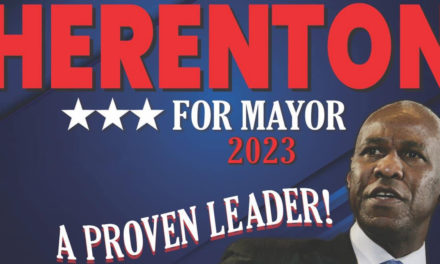We’re posting resolutions, predictions, and observations by Memphians as they look ahead to the new year.
Dennis Lynch, Sierra Club Chickasaw Group Chair:
I am hopeful for Memphis especially because so many people care and are involved in our city and in their local community. There’s a lot going on, with the constant push-pull of various constituencies. The public involvement is good, but there are a lot of problems to address.
The Sierra Club does play an important role in many issues, but I won’t cover some here because Scott Banbury will be giving you great input on these issues – recycling, solid waste management, and storm water, and Ward Archer on the aquifer and related.
Here are some of my thoughts about the near future (2019 and beyond) in other important conservation issues in Memphis:
1) Memphis will accelerate efforts to reduce the energy burden experienced by many low income families. Multiple organizations will push for major expansion of home weatherization programs and significant investments in renewable energy (taking advantage of major cost declines of solar, wind and batteries). These programs will not only reduce energy costs for low income families, but will make more money available for health care, food and transportation. The efforts to reduce energy costs will also put increased pressure on MLGW and the City of Memphis to separate from the 100% TVA electricity supply contract, and to invest in renewables, thus further helping to reduce the energy burden for Memphis residents. Advocates, planners and budgeteers will work to develop committed funding sources.
2) The Sierra Club and others will turn up the volume about the absolute need to deal with climate change and to implement strategies that will move us to 100% clean energy as soon as we can- another motivation to invest in renewables. Recent reports by the UN Intergovernmental Panel on Climate Change (“Global Warming of 1.5 ºC“, https://www.ipcc.ch/sr15/) and the US (“Fourth National Climate Assessment”, https://nca2018.globalchange.gov/downloads/NCA4_2018_FullReport.pdf) make it clear that we must act now and we must act decisively. The oil and coal industries will keep pushing back, but more and more of our elected officials will finally realize that “dirty fuels are not our future”. Further, the patience of the public will fade as clean energy solutions are very do-able and affordable, and the public will demand action. Note- that in any case, nuclear power will not be the solution, due to its many shortcomings- nuclear waste, cost-overruns, time delays, major and minor accidents, skepticism about the Bellafonte proposal and nuclear’s inability to respond rapidly to changes in demand for energy.
3) Memphis and Shelby County residents and politicians will make major commitments to enhancing our public transit system (guided by the Memphis 3.0 Transit Vision Plan). This will benefit the whole population by making the community more attractive and jobs more accessible, in addition to providing much better needed service for those who can’t afford a car. There will be increasing efforts and eventually a “Yes” vote for a committed funding source for part of MATA’s budget.
4) Parks and open spaces will be under pressure to find workable middle-ground between major projects, conservancies, PPP’s and neighborhood viewpoints. Some projects will go forward, while others will be caught in endless debate. We are hopeful that an effective public involvement process will grow to give the community more input in these projects, and more community consensus on the Riverfront, Downtown, Brooks Museum, Overton Park, Shelby Farms, the Wolf River and the many smaller park needs around the city.
5) Community and faith-based organizations will work together through MICAH which will gain ever greater influence in the community, and thus will make sure Equity is a key element in all- Economic, Education, and Immigration and Intercultural priorities.
6) the Sierra Club will continue to work in all of the above areas to push for equity and environmental justice.
Scott Banbury, Conservation Programs Coordinator and State Lobbyist, Tennessee Chapter of the Sierra Club:
Memphis will finally join the rest of Tennessee in managing its stormwater under rules that everyone else had to conform to in 2010–Memphis has been operating under a 5 year permit that expired in 2008.
Communities throughout Memphis will finally get some answers, and solutions, to localized flooding problems that should have been addressed years ago. We will require developers of new impervious surfaces in Memphis to mitigate their impacts and seek creative green solutions to our stormwater problems.
The Shelby County Commission will require that the Shelby County Groundwater Quality Control Board finally follow through on its original 1987 mandate to:
“Secure, protect, and preserve the quality and quantity of the groundwater within the boundaries of the county; and to abate existing pollution of the groundwater and to plan for the future use of the groundwater so that the groundwater resources of the county shall be used and enjoyed to the best interests of all its citizens.”
This will entail giving the Shelby Groundwater Board real authority, opening the board to significant public participation, and developing a funding stream that appropriately staffs the board.
Memphis Light Gas and Water (MLGW) will seriously consider whether being an “all requirements” customer of the Tennessee Valley Authority is really in MLGW ratepayers’ interests, or whether we need to look elsewhere for our basic power needs, and join communities across the country in investing in more clean renewable energy–solar and wind–and provide opportunities for our highest “energy burden” ratepayers to reduce their costs through energy efficiency.
With strong and well positioned local voices in the TN General Assembly, we will begin to address the issues surrounding abandoned “Brownfield” sites in Memphis and other low-income areas, that pose environmental clean up challenges and a burden on our tax rolls. We will begin to recognize and avoid the targeting of low-income communities, both urban and rural, with hazardous industrial activities, and give greater voice to disenfranchised or dispossessed communities.
Shelby County will conduct a long needed solid waste characterization study and create a new solid waste plan, to replace the last plan in done in 1994, that will lead to less waste, less landfills, less municipal costs, more jobs, and more opportunities for remanufacturing wastes into profitable products.





